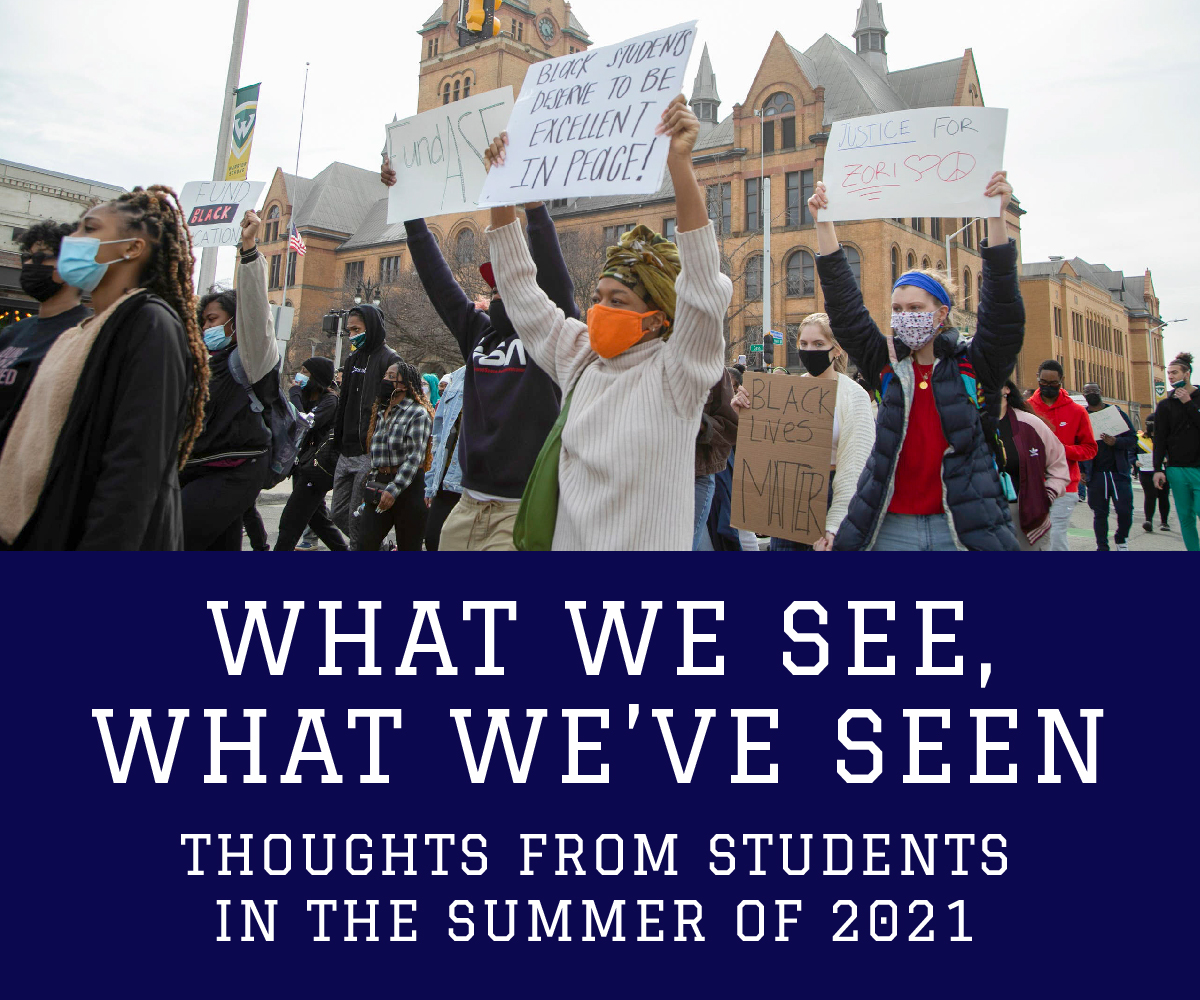
Photo credit: Mandi Wright, Detroit Free Press
by Taylor Schott
There is something unavoidably reflexive about the halfway that causes us, ever so necessarily, to stop and reconsider everything we have ever done, and everything we might do. The halfway I am speaking of now is my time at university — time that has been fissured by a pandemic — but that has still served as an interlocutor to adulthood, a brief introduction into a world otherwise untouched. I’ve known nothing but a life in school, and imagining being spit out upon graduating feels like an exercise in accepting great uncertainty, a lesson I suppose we should all learn at some point. I’m trying to spin that unease into something of an opportunity. A real chance, not a loss. But how does one do that? How should one convince oneself that there will indeed be firm ground to land on, that we will not get lost in the point?
There are reserves of well-written articles online and entire shelves of self-help books at the local stores that aim to resolve, or at the very least assuage, the exact unease I am describing here. Their headlines vary: Tips for Recognizing and Coping With Career Anxiety; How To Overcome Post-Graduation Depression; Fear of the Unknown: Causes, Symptoms, Risk Factors. But no matter their titles, it’s always the same discussion with a particular sensitivity. Affirms their writers, “These experiences are not necessarily pathological, but rather a normal part of the human experience. But, if you are facing something which seems out of proportion with the situation or is impacting your ability to function normally, then it might be something more.”
For some, this unknown is exciting. For others, it is positively troubling. I hate to say that I camp with the latter, but as an artist, this is hardly surprising. Oh how I wish I could be someone with few worries, who could view the future with nothing but excitement in the chance! Had I been able to choose, I believe the mind free of disorder would have been an easier life. Though it is these very same disturbances which are labeled general anxiety that have enabled me to be so painfully aware, in the know about the days or weeks or months ahead that will be imbued with disproportionate worry and a tight chest.
~
It turns out that you can make the Dean’s List as a fine arts major and still not find yourself worthy of any of the credit it celebrates. For weeks after this spring’s final exams ended, I was plagued by dreams of varying academic scenarios, but always the same moral — I could not drop a class well beyond my abilities, I had waited too long to start an important work, a professor deemed my paper to be meritless. I didn’t really earn those good grades, I had faltered. I must’ve just gotten lucky, though people who are proud of me say otherwise. The overactive mind never fails to both pain and impress me in the ways it goes about discrediting my efforts. These dreams have since stopped, but I don’t believe their impression has yet left me.
The worst part about living with a diligent inner-critic is that she is always on the job, pinning you, working to discredit any real confidence you had about yourself. She will have you convinced, even if just for a moment or two, even if subliminally, that the rules of compassion which apply to others most certainly does not apply to you, that you do not deserve the slack they give. For the artistically inclined, the inner-self critic is ever so dedicated to proving that they are right, that your work does not matter, and that others are always going to do a better job of it than you. However troubling, it is this voice which gives you the dissatisfaction necessary for excellence. Its fuel is like the study of philosophy: nearly all of it is unanswerable, insatiable, but its very virtue of being so is what gives it power. For what longevity would art have if after every piece, the artist felt that her work was really done?
~
The firmest prediction I’ve ever been able to make about a potential career as an artist is teaching, becoming a professor — inspired by the ones I’ve had and loved, or had and hated, or whose lives seemed so enticingly artistic. They lived in London and their accent stuck. They were born in Bosnia and smoked cigarettes in the school corridors. They taught in Japan and they miss it. Give me that life and I might be glad for it.
I despise the implications of quotes like this one, “An artist, if serious, should expect to suffer and be poor.” They are not suffering because they are artists, but because they are human. I despise the fact that at every turn, artists are made to feel as though they are worth nothing until they have “made it”, that friends of your parents will prod you at the holiday parties, asking with a curled smile, “So really, what do you want to do?” This dominating trope of the starving artist, the unhappy artist, is one of great pretense. Everyone suffers. The artist just knows what to do with it.

